Search
Did you mean: Isis?
Search Results
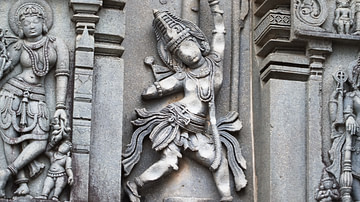
Definition
Arjuna
Arjuna (also given as Arjun) is the great hero of the Indian epic Mahabharata and the philosophical-religious dialogue Bhagavad Gita. His name means “shining”, “silver” and similar terms relating to brightness. He is the most popular champion...
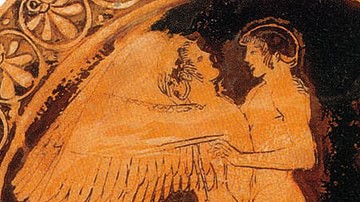
Definition
Zephyrus
Zephyrus was the god of the west wind and the messenger of spring in Greek mythology. He was known as one of the four Anemoi, or wind gods, each of whom represented a cardinal direction and, except for Eurus, a season. Zephyrus was often...
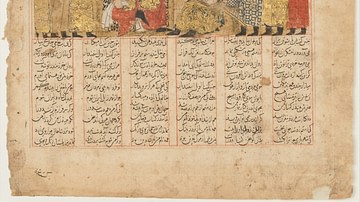
Definition
Shahnameh
The Shahnameh (“Book of Kings”, composed 977-1010 CE) is a medieval epic written by the poet Abolqasem Ferdowsi (l. c. 940-1020 CE) in order to preserve the myths, legends, history, language, and culture of ancient Persia. It is the longest...
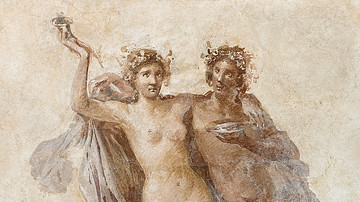
Definition
Ariadne
Ariadne is a figure in Greek mythology, best known for her role in helping Theseus to defeat the monstrous half-man half-bull Minotaur, her half-brother, and escape the Labyrinth, the torturous maze beneath the palace of Knossos in Crete...
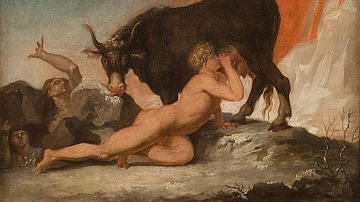
Definition
Ymir
Ymir is a primordial giant, closely linked to the creation myth and the beginning of the world in Norse mythology. A creature resulting from the dramatic encounter between ice and fire, he was fed by a cosmic cow and his body parts served...
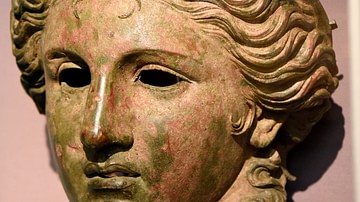
Definition
Anahita
Anahita is the ancient Persian goddess of fertility, water, health and healing, and wisdom. Owing to her association with life-giving properties, she also came to be connected with ancient Persian warfare as soldiers would pray to her for...
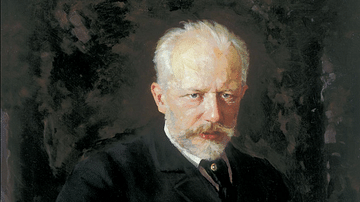
Definition
Pyotr Ilyich Tchaikovsky
Pyotr Ilyich Tchaikovsky (1840-1893) was a Russian composer most famous for his symphonies, the ballets Swan Lake, The Sleeping Beauty, and The Nutcracker, and the operas Eugene Onegin and The Queen of Spades. A composer of innovative and...

Definition
Caesarion
Ptolemy XV Caesar “Theos Philopator Philometor” (“the Father-loving Mother-loving God”) (c. 47-30 BCE), better known by his unofficial nickname Caesarion or “Little Caesar” in Greek, was the oldest son of Cleopatra VII (69-30 BCE) and was...
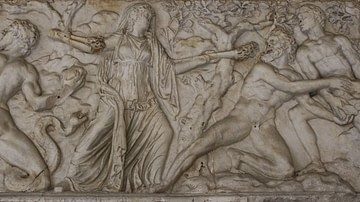
Definition
Leto
Leto is a Titan and the mother of the gods Apollo and Artemis in Greek mythology. Leto's twin children were the result of an amorous encounter with Zeus, and to avoid his wife Hera's wrath, the Titaness was obliged to give birth on the remote...
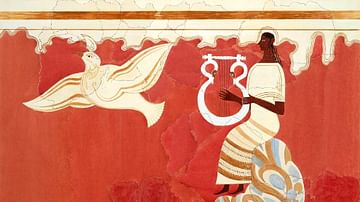
Definition
Pylos
Pylos was a significant Mycenaean Bronze Age city located in the region of Messenia, Greece. The site is situated on the hill of Ano Englianos and during its Late Bronze Age occupation between c. 1600-1200 BCE it covered a maximum area of...